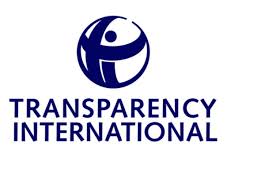 Transparency International today called on the Malaysian government to ensure independent investigations into corruption allegations, and that prosecutions and punishments are followed through, irrespective of who is implicated.
Transparency International today called on the Malaysian government to ensure independent investigations into corruption allegations, and that prosecutions and punishments are followed through, irrespective of who is implicated.
Malaysia is facing a major corruption crisis. Representatives from more than 110 Transparency International chapters and members at its Annual Membership Meeting from around our global Movement asked the government to ensure independent investigations into all corruption allegations.
“If Malaysia is to get through its current crisis then the government must let those who know how to investigate corruption do their job. The Malaysian Anti-Corruption Commission must be able to act independently and be free from political interference,” said José Ugaz, chair of Transparency International.
The call from the Transparency International Movement was one of three resolutions passed today at the global anti-corruption organisation’s Annual Membership Meeting in Putrajaya, Malaysia.
Transparency International also resolved to press for reconciliation and amnesty laws that do not legalise impunity. This resolution was passed as the Tunisian parliament considers a draft law that would allow people who stole public funds to be given amnesty for past crimes. In Mongolia, a new law would grant amnesty to anyone being investigated by the anti-corruption commission.
The Transparency International Movement also resolved to push for reforms and practices that address financial systems that facilitate tax evasion and that allow those responsible to escape justice. The text of the three resolutions is available here.
The Annual Membership Meeting of Transparency International has also elected Nada Abdelsater-Abusamra of the Lebanese Transparency Association and re-elected incumbent board member Iftekhar Zaman as board members.
Brief biographies of the TI board members elected today:
Iftekhar Zaman (Bangladesh) holds a PhD in economics and has worked extensively as a researcher and manager of research institutions including the Regional Centre for Strategic Studies (RCSS) in Sri Lanka and the Bangladesh Institute for International and Strategic Studies (BIISS), where he worked for 19 years. Having published a wide range of books and research articles over his career, Zaman has been the Executive Director of TI Bangladesh since 2004. Zaman served on TI’s board from 2008 – 2011 and again from 2012-2015.
Nada Abdelsater-Abusamra is the Chair of the Lebanese Transparency Association, Transparency International’s national chapter in Lebanon. She is an international lawyer admitted who represents the victims in the Special Tribunal for Lebanon sitting in the Hague. She is a founding member of the OECD Working Group on Corporate Governance and holds a Masters in Law from Harvard Law School, a Lebanese and French Master law degree from the Université Saint Joseph in Beirut, and a bachelor of Science from the American University of Beirut.
Transparency International is the global civil society organisation leading the fight against corruption.
